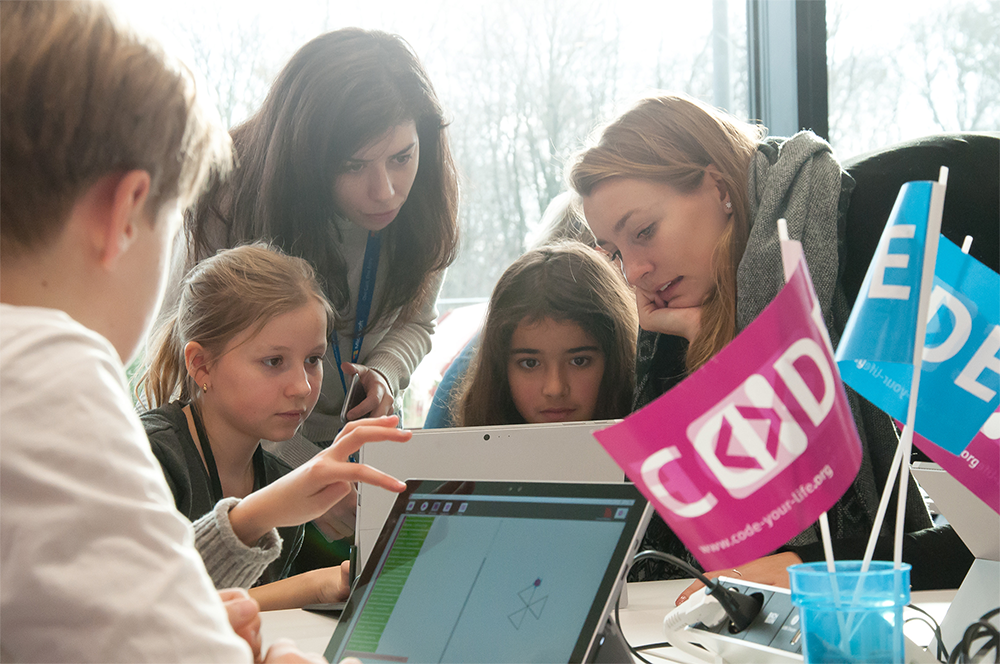By Sylvie Laffarge, Director of Philanthropies Europe
The labor market is changing. With technology influencing all jobs, it is vital that young people are equipped with the skills to thrive in the digital economy. Digital skills like coding, once considered specialist, will become as fundamental as reading or writing. But as we enter a world augmented by Artificial Intelligence (AI), our human qualities, such as creativity, empathy and problem solving – will be more important than ever.
While learning to code will be essential, you will need creativity to apply this digital language to real problems as well as invent and build new things. Isaac Newton, for example, would not have discovered gravity without having the imagination to link his theory with the apple that dropped on his head.
How can we ensure today’s students have the right skills to succeed in the future? We recently conducted a global piece of research, The Class of 2030, which is part of an ongoing body of research that is helping us understand how we can best support our kids in the digital future. Together with McKinsey, we surveyed more than 4,000 students, educators, policy makers and technologists to understand the skills that will be required for tomorrow’s workforce.
The findings revealed that the fastest growing occupations, such as technology professionals and healthcare providers, will require a blend of digital skills and capabilities such as creative problem solving and analytical thinking. Overall, thirty to forty percent of jobs will also require a mix of social-emotional skills, including effective collaboration and ethical decision-making. However, the report found that only 50 percent of students possess the crucial combination of digital, cognitive and social-emotional skills.
How do we help teachers nurture the well-rounded students the future job market will demand? The report found that although teachers recognize the importance of weaving social skills into the learning program, nearly 40 percent don’t have the time to include all of these skills in the curriculum. Technology in the classroom can be a game-changer.
Kris Vande Moortel, a STEM teacher in Belgium, uses Minecraft: Education Edition to help develop all of these skills simultaneously:
“What’s unique about Minecraft: Education Edition is that it teaches kids core digital skills, like programming and video game design, alongside skills like collaboration and communication. For example, when I set a group challenge within Minecraft: Education Edition, my students have to use their digital capabilities to navigate the platform, but they also have to work together to solve problems, building essential skills like critical thinking.”
This EU Code Week, an annual, grass-roots initiative led by the EU Commission, Microsoft will be supporting events in six countries, reaching over 900 participants, to get teachers, students and policy leaders involved. In Germany, we are collaborating with Code your Life to host a CodeCamp for over 60 students from different cultural backgrounds. During the event, we will not only teach the children how to code, but also promote interaction that extends beyond language barriers, helping develop social-emotional skills, alongside the digital.
If you are a teacher and you want to learn how to use new technologies to integrate digital, cognitive and social skills into the curriculum, join us at one of our EU Code Week local events or take a look at our ongoing research here.





